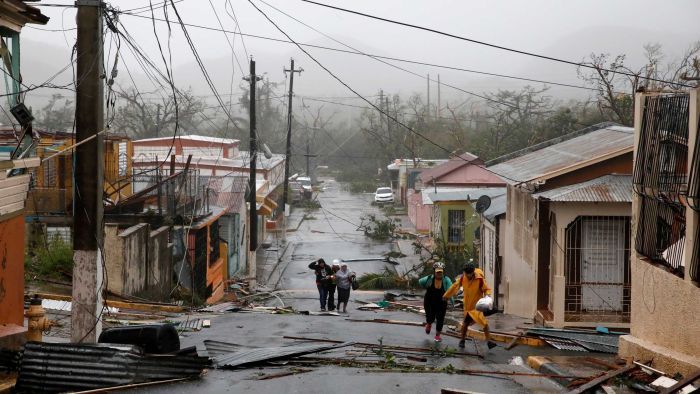Following the natural catastrophes that have taken place over the last few weeks, it is the moment to evaluate how this will affect the education system and thousands of scholars.
Right after a major natural disaster occurs the priorities are rescuing victims, making sure that those affected by it will have access to water and food and raising money for this. The second step is to clean and rebuild the affected area for restoring normality as soon as possible. Only when this recovery process has been achieved governments bodies institutions and experts focus on analyzing the long-term consequences.
As we have seen recently in Texas, Mexico and Puerto Rico the impact a natural disaster have in-country reaches every field. The national economy is probably the most obvious one but, in terms of future prospects, education plays a crucial role in the next generation of future employment and salary. Be forced to modified academic schedule; transfer students from a disaster-affected area to another one; the lost of technology infrastructure and teaching spaces are just some of the educational challenges a region must face after this kind of phenomenon.
A report published in 2011 by the Economics Department of the University of Santiago examines the educational results after the 2010 Chile earthquake (known as 27F). The document shows that although initially, the earthquake didn´t have negative significant effects on average schools performances, those students forced to change to another center experienced a deterioration in their linguistic ability.
On the contrary, according to a similar article from the American Economic Journal named “When the Saints come marching in: effects of hurricanes Katrina and Rita on student evacuees” after a first year of decreasing results students ultimately benefited from the displacement experience:”The results suggest that for students in the lowest performing schools,, the cost to achievement from relocating can be fairly quickly be made up for by the benefits from being in a different school”. Regarding college enrollment, the report includes a table that shows the rate in four-year colleges by school district and cohort. From this numbers, the document highlights that “there is a negative effect on college going for students the suburban parishes among the cohorts who graduate immediately before the hurricanes. There is actually a large and statistically significant positive effect for the students from Orleans parish who graduate in 2006 and 2007”.
So, what can we expect from Mexico and Puerto Rico? At this point, Puerto Rico government hasn’t announced an expected date for classes resume. Hurricane Maria has completely destroyed UPR (University of Puerto Rico) main campus, Ríos Piedras. Saul González, an exchange Spanish student in the island, had to stay at Torre Norte hall during the storm. Even though electronic communications had not been restored yet, he was able to talk with his family through Facebook and let them know he was safe at the student hall.
Three days ago they started reconstruction work. The president of UPR Darrel F.Hillman Barrera, in a letter to the college community, assured that this process will be completed before the end of the semester. One of the measures being considered to adjust the academic calendar is delaying the end of semester until January or having class on the weekend.
In Primary education, secretary of Education Julia Keleher, just announced a program that will allow students to continue their learning process from home, through writing and answering daily and weekly questions and proposing monthly projects. They will be supervised by parents.
Mexico University has decided to coordinate classes with volunteering activities in order to let students help in the reconstruction work, especially those who study at UNAM (Faculty of Architecture). The university is also doing a census to know the situation of the staff and students. In primary educations, some Schools resumed class this Friday.
For now, it is difficult to know how the earthquake and the hurricane will affect these countries. Also, it is too soon to implement final measures, as local governments keep working to ensure scholars won’t be lost the whole academic year.

